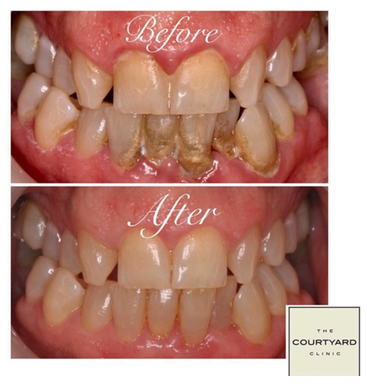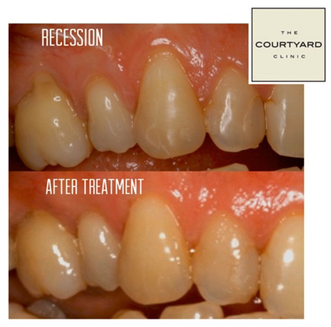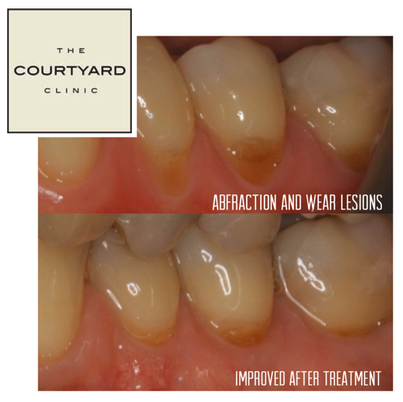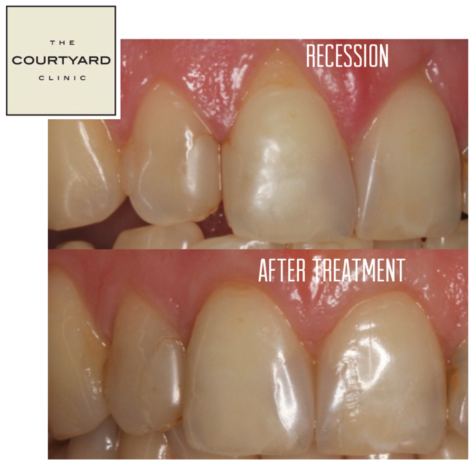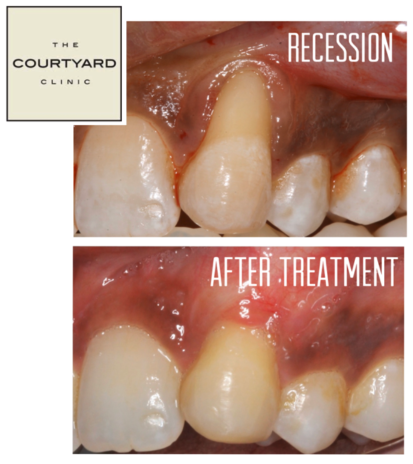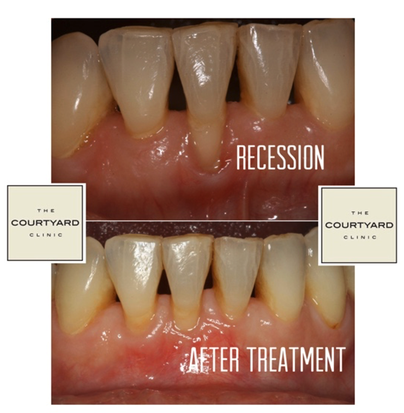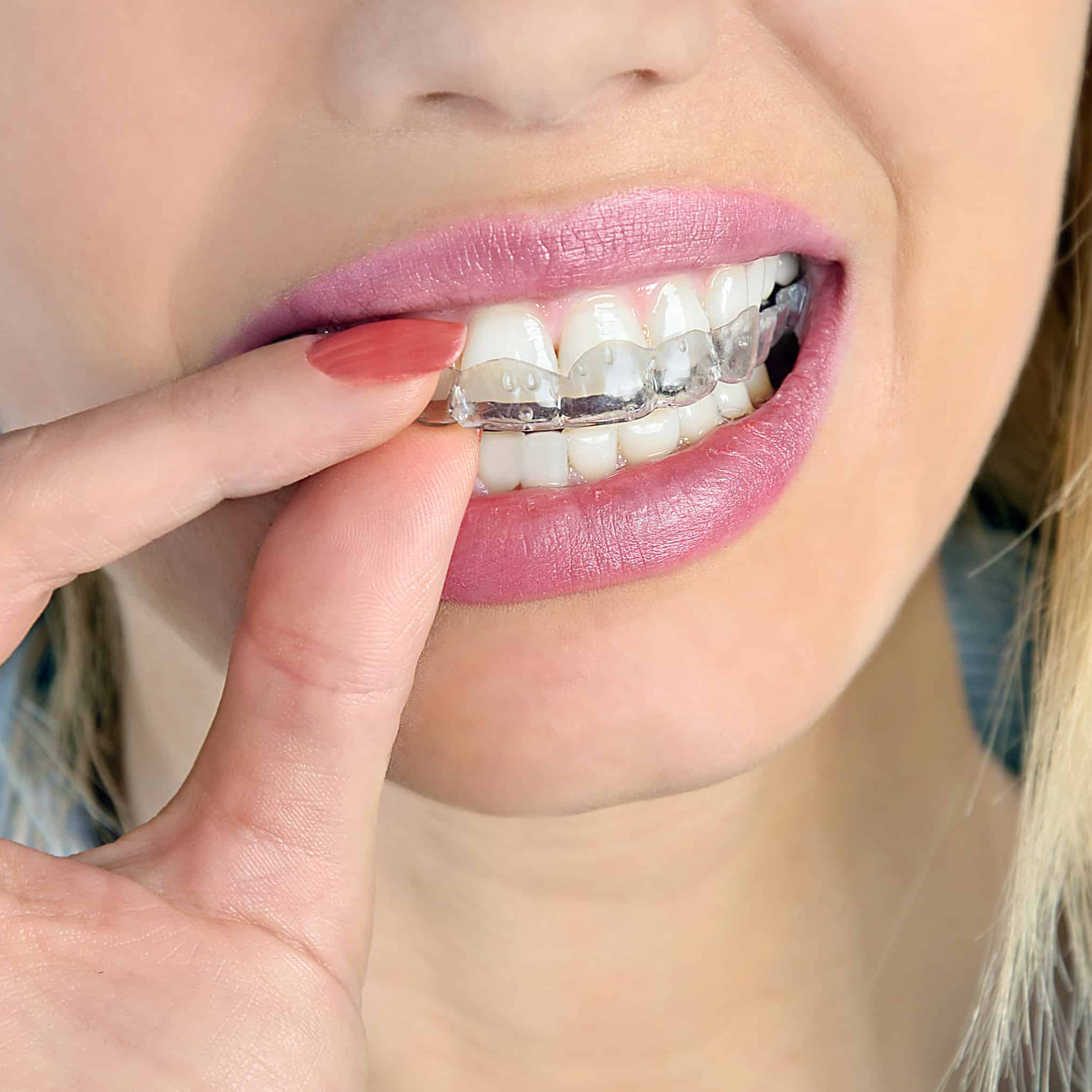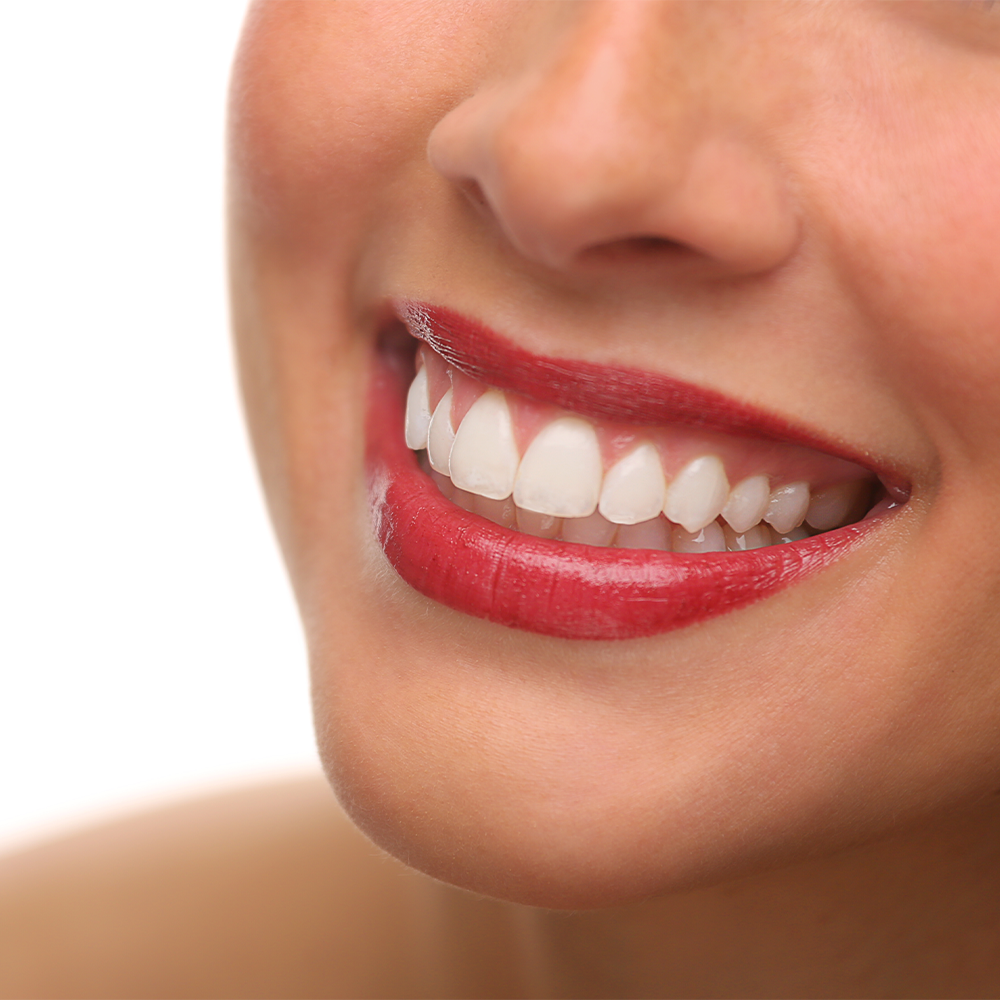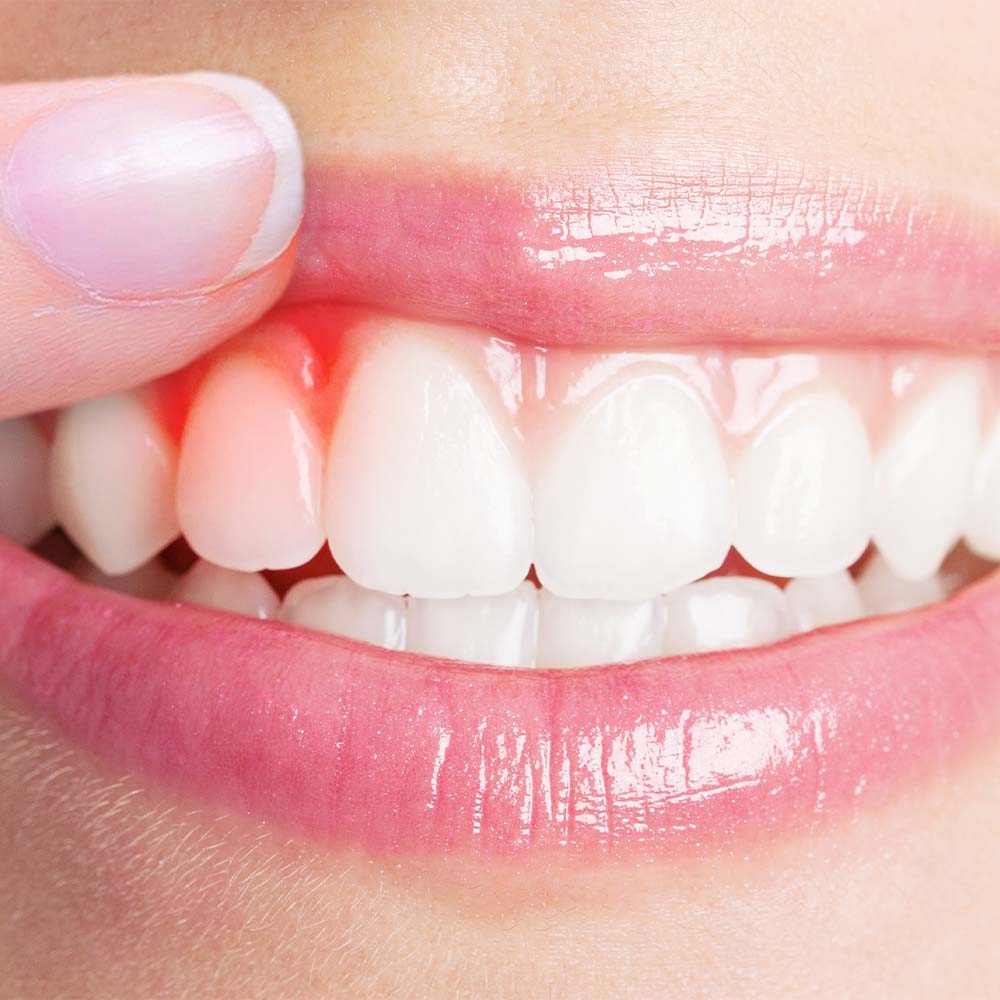Periodontal Gum treatments
Our gum therapies range from scale and polish treatments with our gentle hygienist to gum surgery with our expert dental surgeon. We use state of the art techniques including the use of pinpoint surgery and PRF (Platelet-Rich-Fibrin) to ensure optimum results with minimal down time. We can help treat periodontal disease, its after effects and re-establish correct tissue volume/recession.

Meet Our Expert
What is periodontology?
Periodontology is the field of dentistry concerned with diagnosing and treating dental conditions effecting the gums and periodontal structures surrounding the teeth.
Periodontal tissues are those structures that help support the teeth including the tooth’s periodontal ligament and bone.
We believe periodontal dentists are the best at placing implants too as they not only understand surgical placement of implants but are also highly skilled at optimising soft tissue regeneration around an implant for the most aesthetic outcome.
Gum Disease
Gum disease is one of the most prevalent diseases in the world, it can go undiagnosed as in the early stages it is painless. If left untreated there can become more severed, un-reversible side effects that need long term maintenance. As a patient of The Courtyard Clinic the aim for all our patients is preventing long term issues so we set regular recalls and hygiene appointments as required. However, if mouths do become more severely affected, we can help reverse disease early on or provide good long term stabilisation solutions to prevent your condition getting any worse to prevent the loss of teeth.
What is gum disease?
Gum disease is described as swelling, pain or infection of the tissues surrounding the teeth. There are two main types of gum disease: gingivitis and periodontal disease.
What is gingivitis?
Gingivitis is inflammation of the gum. This is when the gums around the teeth become very red, swollen and lose their definition. This can lead to bleeding gums or blood in your toothpaste/saliva when you spit out. If you are finding this is happening to you please give us a call at the clinic.
What is periodontal disease?
Prolonged gingivitis can progress into periodontal disease. There are several types of periodontal disease, and they all affect the tissues supporting the teeth. As the disease gets worse the bone keeping the teeth in the jaw is lost, making the teeth wobbly. If this is not treated, the teeth may eventually fall out on their own accord.
What is the cause of gum disease?
All gum disease is caused by plaque, bacteria, carbohydrates/sugars, and time. Plaque is a film of bacteria which forms on the surface of the teeth every day. Many of the bacteria in plaque are completely harmless, but there are some that have been shown to be the main cause of gum disease.
To prevent and treat gum disease, you need to make sure you remove all the plaque from your teeth daily. This is done by brushing and cleaning in between the teeth with ‘interdental’ tepe brushes or floss tape. If left, plaque calcifies and hardens into tartar, also know as calculus, which must be professionally removed. Regular hygiene visits will help prevent severe gum disease but if the condition is too far underneath the gum line we will advise you see Dr. Pitamber for Root Surface Cleaning to ensure disease progression is halted.
Signs It's Time to Make a Call
GUM Disease
You may have gum disease if you are experiencing the following:
- Swollen or puffy gums
- Bright red, dusky red or purplish gums
- Gums that feel tender when touched
- Gums that bleed easily
- Pink-tinged toothbrush after brushing
- Spitting out blood when brushing or flossing your teeth
- Bad breath
- Pus between your teeth and gums
- Loose teeth or loss of teeth
- Painful chewing
- New spaces developing between your teeth
- Gums that pull away from your teeth (recede), making your teeth look longer than normal
- A change in the way your teeth fit together when you bite
Risk Factors
GUM Disease
- Poor oral health habits
- Smoking or chewing tobacco
- Hormonal changes, such as those related to pregnancy or menopause
- Recreational drug use, such as smoking marijuana or vaping
- Obesity
- Inadequate nutrition, including vitamin C deficiency
- Genetics
- Certain medications that cause dry mouth or gum changes
- Conditions that cause decreased immunity, such as leukemia, HIV/AIDS and cancer treatment
- Certain diseases, such as diabetes, rheumatoid arthritis, and crohn’s disease
We will take a full social and medical history to see if there is any advice we can give to modify your risk category.
Periodontal Services We Provide
GUM Disease
- Deep cleaning (also know as root surface debridement)
- Soft tissue grafting for recession
- Bone grafts for bone loss
- Crown Lengthening
- Frenectomy
- Root biomodifications
- Correction of gingival hyperplasia (excessive gum growth) and gummy smiles
- Gum lifts
- Gum recontouring
- Guided tissue regeneration
- Platelet Rich Fibrin technology to Deep cleaning (also know as root surface debridement)
- Surgical extractions and socket grafting
- Placement of dental implants with optimal soft tissue healing
- Sinus grafting
- Ridge augmentation and grafting
First steps to getting started
We will welcome you to the clinic for a thorough consultation if treatment is required.
What to expect:
- A 1 hour appointment with Dr. Pitamber which includes a detailed examination of your mouth and also any necessary X-rays.
- A full mouth periodontal evaluation will be conducted. The diagnosis, detailed explanation of the treatment options and the proposed plan will then be discussed using video imaging and models.
- A written treatment plan will follow including the details of the examination as well as fees will also be provided along with appointment schedules.
